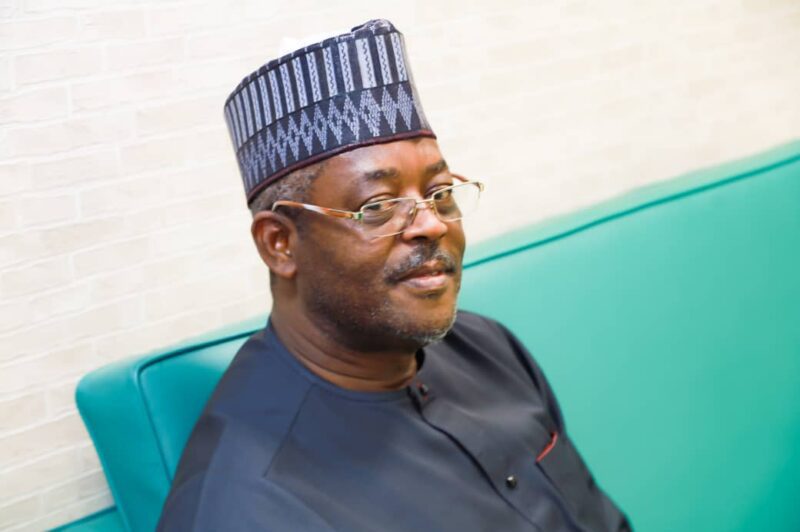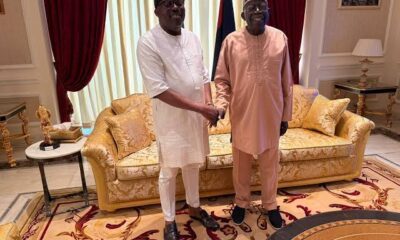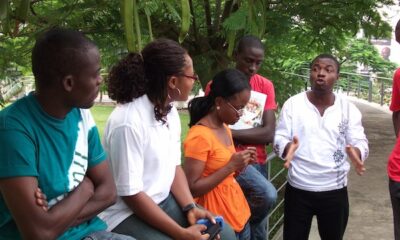Life And People
AMG at 62: A Life of Service, A Legacy of Change -By Abba Dukawa
When a society is denied God’s mercy, it often finds itself overwhelmed by regret. This situation serves as a sobering reminder. The people of the constituency are reflect on the importance of electing representative who embody respect, empathy, and compassion. This resonates with a Hausa proverb that aptly captures the reality: “If hardship is destined, clever interventions will only lead to futility. It’s time for constituents to break free from ineffective representation and elect competent people who genuinely prioritize their well-being.

Great public servants are defined by a clear vision, compelling goals, and a deep commitment to lasting impact. Their conduct is marked by courage, integrity, focus, perseverance, and humility. These are the very qualities that defined Hon. Abdullahi Mahmud Gaya’s a life of service, a legacy of change. As a former parliamentarian, he exemplified these ideals. During his two terms in the Green Chamber, he initiated transformative projects that reshaped lives and raised the standard of representation in his constituency.
A devoted servant of his people and a catalyst for change, Hon. Gaya demonstrated unwavering commitment to their well-being. He remained approachable and engaged, always listening attentively to the concerns of individuals and communities alike. Through his legislative platform, he championed policies that delivered tangible improvements, leaving behind a legacy that few can match.
Before Hon. Abdullahi Mahmud Gaya’s election in 2015, the Ajingi, Albasu, and Gaya Federal Constituency suffered from prolonged neglect. Between 1999 and 2015, none of his predecessors established a single constituency office across the three local government areas—a stark indication of disconnected and ineffective representation.
Hon. Gaya’s emergence marked a turning point. Staying true to his campaign promises, he established constituency offices in each LGA headquarters, creating direct and consistent links between the electorate and their representative. He introduced pre-budget consultations, enabling citizens to actively participate in development planning. Annual town hall meetings became institutionalized, strengthening transparency and accountability in the execution of projects aimed at improving the lives of the constituents.
A People-Centered Approach in the House of Representatives
Hon. Gaya’s political journey began in 2015 when he was elected to represent Ajingi, Albasu, and Gaya in the House of Representatives. As a member of the 8th National Assembly, he quickly earned a reputation for inclusive, responsive, and people-centered representation. Despite the constituency’s longstanding infrastructural deficits, Hon. Gaya worked diligently to reverse nearly two decades of stagnation. His efforts spanned several critical sectors:
Education: Constructed and rehabilitated numerous schools, equipping them with essential materials. Healthcare: Built and renovated health centers across all three LGAs, significantly expanding access to medical services.Water & Energy: Installed hundreds of hand pumps, motorized boreholes, and solar-powered streetlights. Other areas Agriculture: Supported irrigation farming by distributing water pump generators and facilitating the construction of an earth dam in Falankawa (Ajingi) and the Panda-Albasu road. Employment: Secured job placements for youths in institutions such as the Nigerian Army, Air Force, Navy, FRSC, FIRS, CBN, KEDCO, NNPC, and other federal and state agencies.
Legislative Excellence
In the 8th Assembly, Hon. Gaya chaired an Ad Hoc Committee that investigated over ₦500 billion owed to the Petroleum Products Marketing Company (PPMC) by oil marketers. The committee works resulted to the recovery of hundreds of billions of naira for the federal government. His competence earned him a seat on the 16-member “Wise Men” Tactical Committee on Economic Recession Recovery, which engaged government bodies, manufacturers, labor unions, and civil society groups to craft responses to the nation’s economic crisis.
In the 9th Assembly, Hon. Mahmud as Chairman of the House Committee on Petroleum Resources (Downstream), led efforts to mitigate the impact of Nigerian Customs Service restrictions on petroleum product discharge in border towns. He also oversaw a forensic investigation into NNPC’s graduate trainee recruitment process and conducted oversight visits to inactive refineries in Port Harcourt, Kaduna, and Warri, identifying pathways for revitalization. One of his most notable contributions was his role in the successful passage of the Petroleum Industry Bill (PIB), which was eventually signed into law by former President Muhammadu Buhari.
Before the passage of the Petroleum Industry Act (PIA), Nigeria’s petroleum sector operated without a comprehensive legal framework. Instead, it was governed by over 16 fragmented and overlapping laws—many enacted more than 50 years ago. This outdated legal structure hampered efficiency, discouraged investment, and cost the nation significant revenue. The PIA marked a transformative shift, bringing clarity, cohesion, and modern governance standards to the oil and gas industry. Hon. Gaya’s role in this legislative breakthrough underscores his national relevance and dedication to reform.
Despite losing his re-election bid, Hon. Gaya remained steadfast in his commitment to his constituents. Just weeks after the election, he personally oversaw his final constituency empowerment initiative, distributing over 200 motorcycles and more hundreds of solar streetlights across the Constituency.
This act stands as a powerful testament to his accountability, enduring integrity, and unwavering dedication to public service—especially in contrast to the common practice where outgoing politicians withhold development projects as a form of silent punishment for not being re-elected.
His tenure stands as a benchmark for effective representation. He earned bipartisan respect for his performance, with many viewing him not merely as a lawmaker, but as a true advocate for the people of Ajingi, Albasu, and Gaya.
In stark contrast, the current representative has faced criticism for inaccessibility and indifference. The constituency is now experiencing the consequences of ineffective representation
By every measure, Hon. Abdullahi Mahmud Gaya’s legacy is one of purposeful, people-first representation. His impact continues to resonate—proof that when done right, public service can transform lives. To the people of Ajingi, Albasu, and Gaya, he remains more than a former lawmaker—he is remembered as a compassionate person who placed their needs above all else.
Hon. Abdullah Mahmud Gaya possesses a remarkable ability to solve complex problems with ease. His selfless nature, combined with a confident and experienced demeanor, has earned him several public appointments. He is meticulous, articulate, and visionary.a goal-oriented public servant with exceptional organizational and human resource management skills.
Hon. Gaya’s post-legislative career reflects continued recognition of his capabilities. Under the Tinubu’s administration, he was appointed: Independent Non-Executive Director, Nigeria Sovereign Investment Authority (NSIA) and Non-Executive Director (Asset Liability), Nigeria Electricity Liability Management Company (NELMCO) These appointments affirm his respected track record and ongoing national relevance.
Born on September 24, 1963, to Malam Mahmud Ismailia Abdullah Maje Karofi and Hajiya Nafisat Mahmud, Hon. Gaya began his education with Quranic and Islamic studies in Gaya town. He obtained his First School Leaving Certificate from Gaya Central Primary School and later attended the prestigious Barewa College in Zaria.
He pursued higher education at Ahmadu Bello University and the University of Abuja. His professional journey began at Afribank (now Polaris Bank), where he rose to the position of Principal Manager. He later served as Kano State’s Commissioner of Finance, demonstrating both financial acumen and a commitment to public service.
When a society is denied God’s mercy, it often finds itself overwhelmed by regret. This situation serves as a sobering reminder. The people of the constituency are reflect on the importance of electing representative who embody respect, empathy, and compassion. This resonates with a Hausa proverb that aptly captures the reality: “If hardship is destined, clever interventions will only lead to futility. It’s time for constituents to break free from ineffective representation and elect competent people who genuinely prioritize their well-being.
May the years ahead be ever more purposeful in service to humanity.
Dukawa, write from Kano can be reached at abbahydukawa@gmail.come










